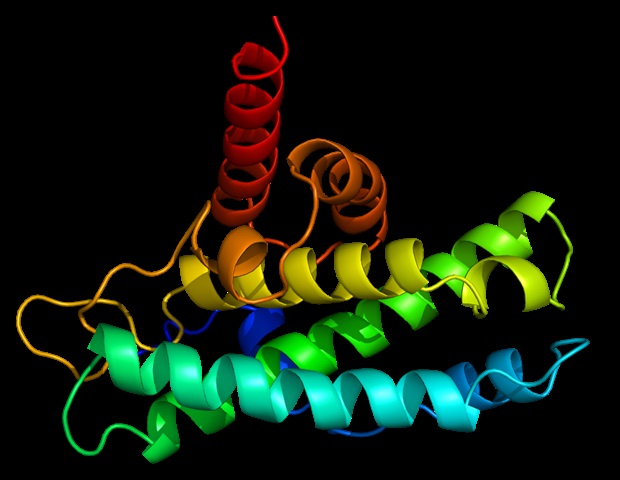Health
Hidden Protein in SARS-CoV-2 May Lead to Improved Vaccines

A research team from La Trobe University and Kumamoto University has identified a hidden protein particle within the SARS-CoV-2 virus that could potentially lead to more effective and longer-lasting COVID-19 vaccines. This discovery highlights a protein that elicits a strong immune response, offering a promising alternative to the currently used vaccines that target the frequently mutating spike protein.
Published in the journal Nature Communications, the study reveals that the body’s immune system can effectively recognize an internal protein from SARS-CoV-2. This protein, known as a peptide, is presented on the surface of infected cells through an immune molecule called HLA-C, which helps killer T cells identify and eliminate the virus.
Distinguished Professor Stephanie Gras, the lead researcher and Deputy Director of the La Trobe Institute for Molecular Science (LIMS), emphasized the significance of this finding. “Current vaccines primarily target spike proteins, which mutate frequently due to immune pressure,” she explained. “In contrast, we found that the internal protein, which protects the virus’s genetic material, mutates much less frequently. This knowledge could guide the development of vaccines and treatments that remain effective as the virus evolves.”
The implications of this research extend beyond immediate vaccination strategies. Professor Gras noted that a longer-lasting vaccine could reduce the need for booster shots, providing a more sustainable approach to combating COVID-19. Additionally, this could help mitigate the risks associated with Long COVID, a condition affecting around 10 percent of the population who contract the virus.
“The more people get vaccinated, the better we protect the population,” she stated, underscoring the importance of widespread vaccination in reducing not only the virus’s death toll but also the long-term effects of infection.
The research team comprised Professor Gras, Dr. Demetra Chatzileontiadou, Dr. Janesha Maddumage, and PhD candidate You Min Ahn. Funding for the project was provided through Professor Gras’s National Health and Medical Research Centre (NHMRC) Leadership Investigator Grant and her Medical Research Future Fund (MRFF) grant aimed at investigating COVID-19.
Collaboration with Associate Professor Chihiro Motozono and Yoshihiko Goto from the Joint Research Center for Human Retrovirus Infection at Kumamoto University facilitated the findings, with data collection supported by the Australian Synchrotron.
Looking ahead, Professor Gras is set to lead a new research initiative at La Trobe University focused on understanding Long COVID and other debilitating post-viral infections, such as Myalgic Encephalomyelitis/Chronic Fatigue Syndrome (ME/CFS) and Multiple Sclerosis (MS). The Post-Acute Viral Infection Diseases Group (PAVING) Centre of Research Excellence has already received $3 million in federal funding from the NHMRC to support this important work.
The discovery of this hidden protein within the SARS-CoV-2 virus highlights a potential pathway for developing vaccines and treatments that could effectively combat the ongoing challenges posed by COVID-19 and its variants, ultimately aiming for a healthier future for communities worldwide.
-

 Health3 months ago
Health3 months agoNeurologist Warns Excessive Use of Supplements Can Harm Brain
-

 Health3 months ago
Health3 months agoFiona Phillips’ Husband Shares Heartfelt Update on Her Alzheimer’s Journey
-

 Science1 month ago
Science1 month agoBrian Cox Addresses Claims of Alien Probe in 3I/ATLAS Discovery
-

 Science1 month ago
Science1 month agoNASA Investigates Unusual Comet 3I/ATLAS; New Findings Emerge
-

 Science4 weeks ago
Science4 weeks agoScientists Examine 3I/ATLAS: Alien Artifact or Cosmic Oddity?
-

 Entertainment4 months ago
Entertainment4 months agoKerry Katona Discusses Future Baby Plans and Brian McFadden’s Wedding
-

 Science4 weeks ago
Science4 weeks agoNASA Investigates Speedy Object 3I/ATLAS, Sparking Speculation
-

 Entertainment4 months ago
Entertainment4 months agoEmmerdale Faces Tension as Dylan and April’s Lives Hang in the Balance
-

 World3 months ago
World3 months agoCole Palmer’s Cryptic Message to Kobbie Mainoo Following Loan Talks
-

 Science4 weeks ago
Science4 weeks agoNASA Scientists Explore Origins of 3I/ATLAS, a Fast-Moving Visitor
-

 Entertainment4 months ago
Entertainment4 months agoLove Island Star Toni Laite’s Mother Expresses Disappointment Over Coupling Decision
-

 Entertainment3 months ago
Entertainment3 months agoMajor Cast Changes at Coronation Street: Exits and Returns in 2025









